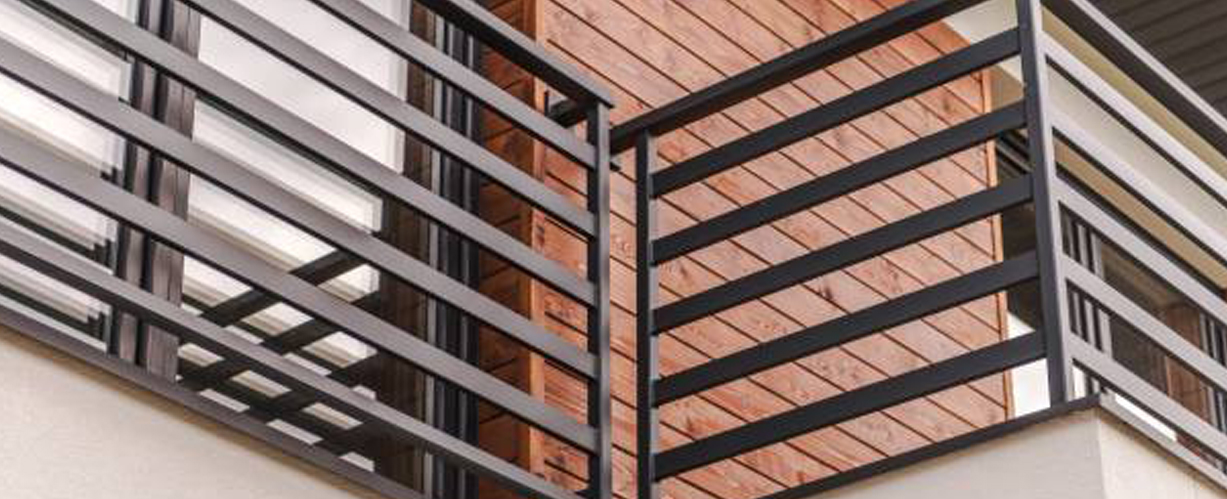Submit a service request. We will contact you shortly and answer all your questions.
Unlike a loggia, an open balcony requires the mandatory installation of railings due to its design. Metal railings for balconies provide sufficient safety and serve as a decorative element for the facade. Regardless of the type of residential property or its location, stylish and durable balcony railings fit any exterior and reliably protect residents.
Supports: What They Are Made Of and What They Are For
Since stainless steel is the leading material for railings due to its properties, stainless steel balcony railings are the most common and popular option. These structures are durable, resistant to corrosion and other external influences, and have a long service life.
To ensure maximum stability for the railings and safety for balcony users, special support posts — balusters — are used.
In rainy or snowy weather, the risk of being on the balcony increases because the railings become wet and slippery. Using anti-slip technologies, special materials, and overlays during the production of handrails significantly enhances safety.
To create a sturdy structure, it is essential to use reliable support mounts that are securely fixed to the balcony base. Considering architectural nuances, specialists perform the necessary calculations to ensure the correct spacing of balusters. If small children or pets live in the house or apartment, this aspect is critically important.
The most reliable way to ensure safety is to install solid metal railings or position balusters very close to each other.
Features of Metal Balcony Railings
Stainless steel railings offer undeniable advantages:
- strength and reliability;
- safety for open spaces;
- resistance to external factors, including corrosion;
- high durability;
- a wide range of designs.
If you care not only about the safety of the balcony but also its aesthetic appeal, stainless steel railings are the optimal choice. Steel pairs well with other materials, including stone, tiles, etc.
Balcony railings are widely used in government institutions, private enterprises, educational establishments, and multi-story buildings.
